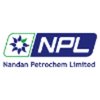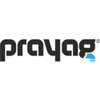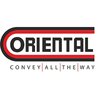Filter interviews by
Mickeyfone Technologies(India) Process Engineer Interview Questions and Answers
Mickeyfone Technologies(India) Process Engineer Interview Experiences
1 interview found
(5 Questions)
- Q1. Explain about the yield rate
- Ans.
Yield rate is the percentage of usable products produced in a manufacturing process.
Yield rate is calculated by dividing the number of good units produced by the total number of units started in the process.
It is an important metric in manufacturing as it indicates the efficiency of the process.
A high yield rate indicates that the process is producing a high percentage of usable products.
For example, if a manufacturing...
- Q2. What is why-why analysis
- Ans.
Why-why analysis is a problem-solving technique that involves asking 'why' multiple times to uncover the root cause of an issue.
Involves asking 'why' repeatedly to dig deeper into the causes of a problem
Helps identify the underlying reasons behind a problem rather than just addressing symptoms
Commonly used in quality management and process improvement
Example: If a machine breaks down - Why? Because it overheated - Why?...
- Q3. CAPA
- Q4. 8D reports
- Q5. FIFO,LIFO
(2 Questions)
- Q1. Your hobbies and interests
- Ans.
My hobbies include hiking, cooking, and playing the guitar.
Hiking: I enjoy exploring nature trails and challenging myself physically.
Cooking: I love trying out new recipes and experimenting with different cuisines.
Playing the guitar: I find playing music to be a relaxing and creative outlet.
- Q2. Sallary expectations and others general questions
Interview Preparation Tips
Top trending discussions






Interview questions from similar companies

(1 Question)
- Q1. How to reduce cost of product
- Ans.
Reducing product cost can be achieved through various methods such as optimizing production processes, sourcing cheaper materials, and reducing waste.
Optimize production processes to increase efficiency and reduce labor costs
Source cheaper materials without sacrificing quality
Reduce waste by implementing lean manufacturing principles
Negotiate better prices with suppliers
Streamline supply chain to reduce transportation ...
Interview Preparation Tips
But Not over confidence.

I appeared for an interview before Mar 2024, where I was asked the following questions.
- Q1. Learning from past companies.
- Q2. 5 core tools of Quality.
- Ans.
The 5 core tools of quality are essential for process improvement and ensuring product excellence.
1. Check Sheets: Used for data collection and analysis, e.g., tracking defects in a manufacturing process.
2. Control Charts: Help monitor process stability over time, e.g., tracking the temperature in a sterilization process.
3. Pareto Charts: Identify the most significant factors in a dataset, e.g., showing the most common...
- Q3. IATF clauses for NPD.
Interview Preparation Tips
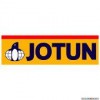
I applied via Recruitment Consulltant and was interviewed in Jan 2024. There was 1 interview round.
(2 Questions)
- Q1. Basic of powder coating
- Q2. What difficulty faced while processing
- Ans.
One difficulty faced while processing is managing unexpected equipment failures.
Managing unexpected equipment failures can lead to delays in production.
Finding alternative solutions or repairing the equipment quickly is crucial.
Implementing preventive maintenance strategies can help reduce the frequency of equipment failures.

I applied via Recruitment Consulltant and was interviewed before Aug 2021. There were 3 interview rounds.

(2 Questions)
- Q1. Introduction About production, document, programming, personal things.
- Q2. About machines, tools, production, rejection ,drawings.
(1 Question)
- Q1. Introduction Personal things experience and salary discussion
Interview Preparation Tips
Prepare about your likes, dislikes, habits etc.

Project Engineer Interview Questions & Answers
Tamilnadu Petroproductsposted on 13 Mar 2025
I appeared for an interview before Mar 2024, where I was asked the following questions.
- Q1. Self introduction
- Ans.
I am a dedicated Project Engineer with a strong background in managing engineering projects and delivering innovative solutions.
Education: Bachelor's degree in Engineering, specializing in Mechanical Engineering.
Experience: Over 5 years of experience in project management within the construction industry.
Skills: Proficient in project planning, budgeting, and resource allocation.
Achievements: Successfully led a team to ...
- Q2. Basic questions
Interview Preparation Tips

Project Engineer Interview Questions & Answers
Tamilnadu Petroproductsposted on 2 Feb 2024
I applied via Naukri.com and was interviewed before Feb 2023. There were 2 interview rounds.
(1 Question)
- Q1. More technical , and related to oil and gas
(1 Question)
- Q1. Related to job and development

Junior Engineer Interview Questions & Answers
Tamilnadu Petroproductsposted on 14 May 2024
I applied via Walk-in and was interviewed before May 2023. There were 2 interview rounds.
They gave one set of questions paper 30marks
(1 Question)
- Q1. It's also same as attitude.50 marks questions they gave

I applied via Approached by company and was interviewed before Jan 2021. There was 1 interview round.
(2 Questions)
- Q1. Distillation column design
- Ans.
Distillation column design is the process of designing a column to separate components of a mixture based on their boiling points.
The design involves determining the number of trays or packing required for efficient separation
The column diameter and height are also important factors to consider
The feed location and reflux ratio must be optimized for maximum separation efficiency
Computer simulations and modeling can aid...
- Q2. Centrifugal pump selection
Interview Preparation Tips

I applied via Campus Placement and was interviewed before May 2021. There was 1 interview round.
(1 Question)
- Q1. Explain about chemical engineering thermodynamics
- Ans.
Chemical engineering thermodynamics is the study of energy and its transformations in chemical processes.
It involves the application of thermodynamic principles to chemical systems and processes.
It focuses on understanding and predicting the behavior of chemical reactions and the flow of energy in chemical systems.
It helps in designing and optimizing chemical processes for efficient energy utilization.
It includes topic...
Interview Preparation Tips
Mickeyfone Technologies(India) Interview FAQs
Tell us how to improve this page.
Mickeyfone Technologies(India) Interviews By Designations
- Mickeyfone Technologies(India) Warehouse Incharge Interview Questions
- Mickeyfone Technologies(India) Engineer Interview Questions
- Mickeyfone Technologies(India) Logistics Executive Interview Questions
- Mickeyfone Technologies(India) Quality Engineer Interview Questions
- Mickeyfone Technologies(India) Test Engineer Interview Questions
- Mickeyfone Technologies(India) Process Engineer Interview Questions
- Mickeyfone Technologies(India) Purchaser Interview Questions
Interview Questions for Popular Designations
- Senior Engineer Interview Questions
- Production Engineer Interview Questions
- Project Engineer Interview Questions
- Junior Engineer Interview Questions
- Associate Engineer Interview Questions
- Graduate Engineer Interview Questions
- Shift Engineer Interview Questions
- Senior Process Engineer Interview Questions
- Show more
Overall Interview Experience Rating
based on 1 interview experience
Interview Questions from Similar Companies
Mickeyfone Technologies(India) Process Engineer Reviews and Ratings
based on 3 reviews
Rating in categories
|
Quality Engineer
20
salaries
| ₹2 L/yr - ₹3.6 L/yr |
|
Process Engineer
11
salaries
| ₹2.6 L/yr - ₹3.8 L/yr |
|
Purchase Executive
8
salaries
| ₹2.4 L/yr - ₹5 L/yr |
|
Test Engineer
8
salaries
| ₹3 L/yr - ₹3.6 L/yr |
|
Production Engineer
7
salaries
| ₹2.5 L/yr - ₹4.1 L/yr |

Sintex-bapl
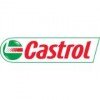
Castrol

Micro Plastics
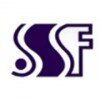
SSF PLASTICS
- Home >
- Interviews >
- Mickeyfone Technologies(India) Interview Questions



